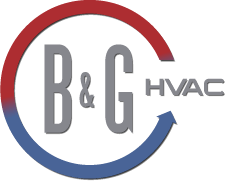
We spend a good majority of our time inside. In fact, the Environmental Protection Agency (EPA) has determined being inside comprises 90% of our days. Having said that, the EPA also has found your indoor air can be three to five times more polluted than outside your home.
That’s due to the fact our homes are tightly sealed to increase energy efficiency. While this is fantastic for your utility expenses, it’s not so good if you’re among the 40% of the population with respiratory allergies.
When outdoor ventilation is limited, pollutants like dust and volatile organic compounds (VOCs) may get trapped. Consequently, these pollutants might irritate your allergies.
You can boost your indoor air quality with crisp air and routine housework and vacuuming. But if you’re still struggling with symptoms during the time you’re at your house, an air purifier may be able to provide relief.
While it can’t eliminate pollutants that have gotten trapped in your couch or carpet, it can help freshen the air circulating across your residence.
And air purification has also been scientifically proven to help lower some allergic symptoms, according to the American College of Allergy, Asthma and Immunology. It might also be useful if you or a family member has lung issues, such as emphysema or COPD.
There are two options, a portable air purifier or a whole-home air purifier. We’ll go over the differences so you can figure out what’s correct for your house.
Whole-House Air Purifier vs. Portable Air Purifiers
A portable air purifier is for a lone room. A whole-house air purifier works with your home comfort system to clean your complete residence. Some models can work on their own when your heating and cooling equipment isn’t on.
What’s the Best Air Purifier for Allergies?
Look for a model with a High Efficiency Particulate Air (HEPA) filter. HEPA filters are installed in hospitals and deliver the best filtration you can get, as they trap 99.97% of particles in the air.
HEPA filters are even more powerful when used with an ultraviolet (UV) germicidal light. This mighty mixture can eliminate dust, dander, pollen and mold, all of which are standard allergens. For the greatest in air purification, evaluate a system that also has a carbon-based filter to decrease household smells.
Avoid getting an air purifier that generates ozone, which is the primary component in smog. The EPA advises ozone might worsen respiratory problems, even when emitted at low settings.
The Allergy and Asthma Foundation of America has made a checklist of questions to consider when buying an air purifier.
- What can this purifier extract from the air? What doesn’t it take out?
- What’s its clean air delivery rate? (A bigger figure means air will be freshened more rapidly.)
- How frequently does the filter or UV bulb need to be replaced]? Can I complete that without help?
- How much do new filters or bulbs cost?
How to Decrease Seasonal Allergy Symptoms
Want to get the {top|most excellent|best] performance from your new air purification system? The Mayo Clinic suggests completing other measures to reduce your exposure to problems that can cause seasonal allergies.
- Stay inside and keep windows and doors sealed when pollen counts are elevated.
- Have other household members mow the lawn or pull weeds, since this work can worsen symptoms. If you must do this work yourself, you might want to consider using a pollen mask. You should also rinse off right away and change your clothes once you’re completed.
- Avoid drying laundry outside.
- Turn on the AC while at home or while driving. Consider installing a high efficiency air filter in your house’s heating and cooling unit.
- Balance your home’s humidity levels with a whole-house dehumidifier.
- Hardwood, tile or linoleum are the ideal flooring kinds for decreasing indoor allergens. If your home has carpet, install a HEPA filter on your vacuum cleaner.
Let Our Pros Take Care of Your Indoor Air Quality Necessities
Want to progress with getting a whole-house air purifier? Give our specialists a call at 641-316-3360 or contact us online to schedule an appointment. We’ll help you find the right unit for your residence and budget.


